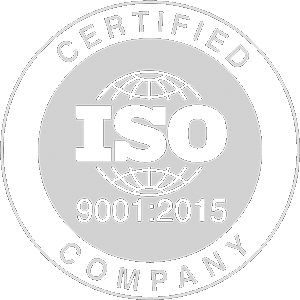PTFE, recognized for its exceptional properties, finds extensive applications across diverse industries. Its outstanding chemical resistance, high-temperature tolerance, low friction, and non-stick characteristics make it a preferred material in sectors such as aerospace, electronics, chemical processing, automotive, medical, and food processing. PTFE serves various purposes due to its ability to enhance durability, reduce friction, withstand harsh environments, and maintain high standards of safety and reliability across a broad spectrum of industrial applications.
PTFE plays a vital role in the aerospace industry due to its exceptional properties. Its resistance to extreme temperatures, chemicals, and friction makes it an ideal material for various critical applications. PTFE coatings are used on aircraft components like seals, gaskets, wiring, and bearings, enhancing durability, reducing friction, and ensuring reliable performance in diverse aerospace environments. Additionally, its lightweight nature contributes to fuel efficiency and helps meet stringent safety standards in aviation.
PTFE is a cornerstone material in the chemical industry due to its exceptional chemical resistance and stability. It finds extensive use in manufacturing equipment components like seals, gaskets, and linings for vessels and piping systems. PTFE’s ability to withstand harsh chemical environments and extreme temperatures ensures the reliability and safety of handling corrosive substances, contributing significantly to the durability and efficiency of chemical processing equipment.
PTFE serves as a cornerstone material in the industrial sector owing to its remarkable properties. Its non-stick surface, high resistance to chemicals and extreme temperatures, and low friction make it highly versatile. In industries, PTFE is widely employed for various applications including gaskets, seals, linings, and coatings for machinery parts. It plays a pivotal role in enhancing equipment durability, reducing wear and tear, and ensuring smoother operations across diverse industrial settings such as manufacturing, processing, and engineering.
PTFE plays a crucial role in the oil & gas industry due to its exceptional chemical resistance and ability to withstand high temperatures and pressures. PTFE is utilized for various applications such as seals, gaskets, and linings in equipment used for exploration, extraction, and refining processes. Its resistance to corrosive materials and ability to maintain stability in harsh environments make it invaluable for sealing components and preventing leaks in pipelines, valves, and fittings. Additionally, PTFE coatings are applied to prevent friction, wear, and enhance the longevity of machinery used in oil and gas operations, contributing to safer and more efficient processes.
PTFE is extensively utilized in the pharmaceutical and medical sectors for its exceptional properties. It serves in producing medical tubing, catheters, and containers due to its biocompatibility and resistance to chemical reactions. PTFE is also instrumental in medical devices and implants, offering durability, low friction, and compatibility with sterilization processes, ensuring high standards of safety and reliability in healthcare applications.
In the semiconductor industry, PTFE plays a critical role owing to its exceptional properties. Its high purity, chemical inertness, and resistance to extreme temperatures make it invaluable for critical processes. PTFE is extensively used in semiconductor manufacturing for insulators, seals, and linings due to its non-contaminating nature, ensuring the purity and reliability necessary for producing high-quality electronic components. Its inertness and resilience in high-temperature environments contribute significantly to maintaining stringent standards within semiconductor fabrication, aiding in the creation of reliable and precise electronic devices.
